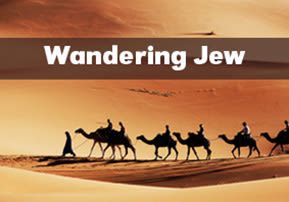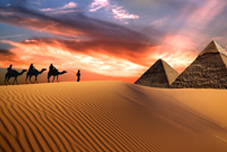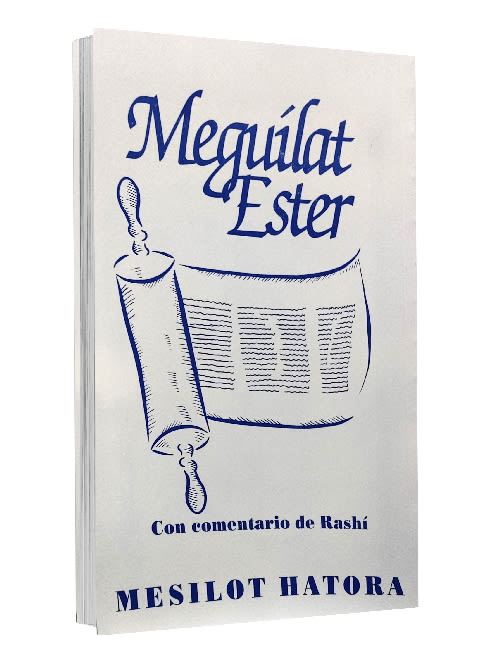
Shemot: The Wandering Jew
The lessons of exile have been long and harsh. We pray that we have learned what we need to learn and that Hashem will soon take us all home to Jerusalem...

As we begin the book of Exodus we are struck by major contrasts between the books of Genesis and Exodus. One basic distinction is that the first book refers to the individual lives of our forefathers whereas the second deals with the birth and development of the Jewish people. A second and possibly more acute difference is the distinction between the tone of the two books. The events of the lives of our forefathers, as challenging as they were, don't reflect the bitter events of exile the Jewish people suffered under the oppressive rule of Pharaoh and the Egyptians. The Torah's retelling of our Egyptian persecution is intended to bring up essential questions concerning our entire history as a people. Unfortunately, the trials and tribulations of exile have been an intrinsic part of our history. The dubious title "Wandering Jew" was earned during our two thousand year sojourn through empires and civilizations, large and small. Is there some way of understanding the nature of exile and its function in the development of the Jewish people?
I want to start with a disclaimer that this topic is an enormous and painful one and, by definition, is almost impossible to comprehend. One reason is that whatever explanation one gives on an intellectual level, the heart still cries from the unspeakable horrors we have endured. In my opinion, anyone who can give convincing and insightful explanations to this phenomenon of our history and doesn't also cry, hasn't fully dealt with the topic.
The history of our exile in Egypt actually started years before our descent to that country. In Parshas Lech L'echa, Abraham was promised that his offspring would merit the land of Israel. Abraham then asked Hashem for a sign that His promise would come true. The  commentators explain that he wanted to know which meritorious acts would enable his children to inherit the land. Even so, his question was seen as a serious lack of faith and Hashem responded harshly by telling him that, based on his shortcoming, his descendants would suffer exile for hundreds of years. There are many questions we could ask about this story, but, at the very least, how would exile rectify Abraham's shortcoming?
commentators explain that he wanted to know which meritorious acts would enable his children to inherit the land. Even so, his question was seen as a serious lack of faith and Hashem responded harshly by telling him that, based on his shortcoming, his descendants would suffer exile for hundreds of years. There are many questions we could ask about this story, but, at the very least, how would exile rectify Abraham's shortcoming?
In general, the basic reason for exile needs further investigation. In our holiday prayers we lament, "because of our sins, we were exiled from our land". It would appear from our liturgy that exile is due primarily to our shortcomings. How could Abraham prophesize that his children would suffer at the hands of the Egyptians? There was no birth of the Jewish people yet. There were no wrong deeds yet. So how could there be a decree of exile? The suggestion that Hashem was telling Abraham that in the future his children would sin is problematic based on our belief in free choice. Nowhere in the Torah do we find a specific punishment based on a predetermined knowledge of future shortcomings. The reason is that this would imply our future history is predetermined, a concept which contradicts the very foundation of free choice.
One final question. In a different episode Abraham was told about the total wickedness of the cities of Sodom and Gomorrah. Hashem informed Abraham of His intentions to destroy these cities. Abraham's response was quick and decisive: prayer on behalf of the inhabitants of these cities. Although his request to save these cities was denied based on their utter corruption, the question arises as to why Abraham didn't pray on behalf of his own descendants. We would have assumed that if these depraved cities merited Abraham's attempt to save them, then, at the very least, he should have done the same for his own future generations. In fact, no such prayer is recorded. Why didn't Abraham pray for his own children?
One of the giants of Chasidus, Rabbi Yisroel of Koznitz, (better known as the Maggid of Koznitz, 1740-1814), is quoted by the Nesivos Shalom. Let's hear what he tells us about the significance of exile and attempt to answer the questions raised above.
The Maggid tells us that from the beginning of time, two cycles of existence were placed before man. The first, and the cycle that we are more familiar with, is the natural patterns and events of world history. From the creation of first man the world was "programmed" for certain events to take place. Wars, peace, the rise and fall of civilizations were all included in the original plan of the world. Historical hindsight has allowed us to understand some of the events of history. However, as of now the full picture of these events is still very much hidden from us. For the meantime, the best we can do is to stay afloat in the waves of time.
However, there was a second pattern of time: a cycle within a cycle. On this level, Hashem gave man the opportunity to be an active partner in the destiny of the planet. If he would listen and fulfill the will of his Creator, this itself would bring mankind to the purpose of the world, namely, creating an environment for Hashem's presence. Adam, while still in the Garden of Eden, was called upon to take the higher route. However, since he ate from the fruit he forfeited that special environment and was sent out of the Garden to begin the first exile of mankind. Subsequent civilizations until the time of Abraham were given a similar opportunity as Adam, to live in close proximity to Hashem by following His will. Unfortunately, time and again mankind fell short and learned to be satisfied with the natural order of time. Abraham appeared on the scene of history to reverse the curse of exile by connecting with this higher level of living. Once the Jewish people accepted the task of living lives of G-dliness, we became partners with Hashem in this inner cycle. From then on we would have a choice. Either live in closeness to our Creator (cycle two mentioned above) and with this lifestyle bring blessing to ourselves and all of mankind or become part of the first cycle of the many vicissitudes and tribulations of world history. However, there was one major difference in terms of the Jewish peoples' relationship with the first cycle of cause and effect. Since our true place was and is to live within the higher cycle of connecting, we would no longer find our place in the world of "nature" that the rest of the world is accustomed to. The times we fell short of our unique relationship with Hashem, nations and nature would produce a hostile environment which would make us rethink and reconnect to the higher path we chose during the Exodus and the Giving of the Torah.
In short, we were given two choices: either dedicate ourselves, individually and collectively, to the Source of all life or be tossed and turned by the winds of exile until we learn its bitter lessons and return to Hashem.
Hopefully now we can answer the questions above. Why exile? In the best case scenario the Jewish people should have never gone to exile. However, once we did, we learned fundamental lessons about the two cycles of life and the ultimate reality that there really is only one environment, the higher cycle, for us to develop and flourish. We mentioned that our liturgy states that our sins caused exile. The truth is yes and no. The sins were a reflection of the fact that we didn't understand our unique job and challenge in this world. Hashem told us that since we didn't learn the lessons of connecting with Him while "at home", we would need to travel to discover the absolute necessity of that relationship. We also mentioned the startling fact that Abraham didn't pray for his children not to go into exile. Based on what we've learned, such a prayer would have been impossible. He understood that his children would need to make the essential choices in order to learn the lessons that exile can teach. A father yearns for his child's success, but ultimately the child needs to make the choices that will lead him to his own greatness. Finally, the descent to Egypt would provide the ultimate experience in purifying the dross of the Jewish soul and enable us to leave Egypt and receive the Torah at Mt. Sinai. So even though we went through such horrific suffering in Egypt, we were also spiritually cleansed and ready to become Hashem's special people.
The lessons of exile have been long and harsh. We pray that we have learned the lessons we need to learn and that Our Father in Heaven will very soon take us all back home to Jerusalem with the coming of Mashiach.






